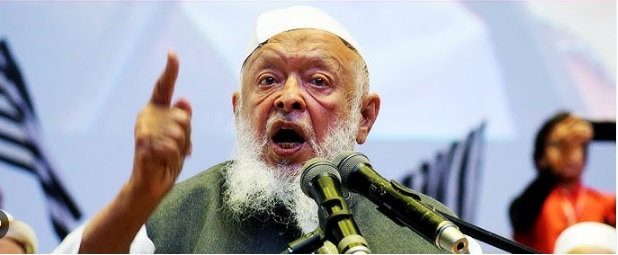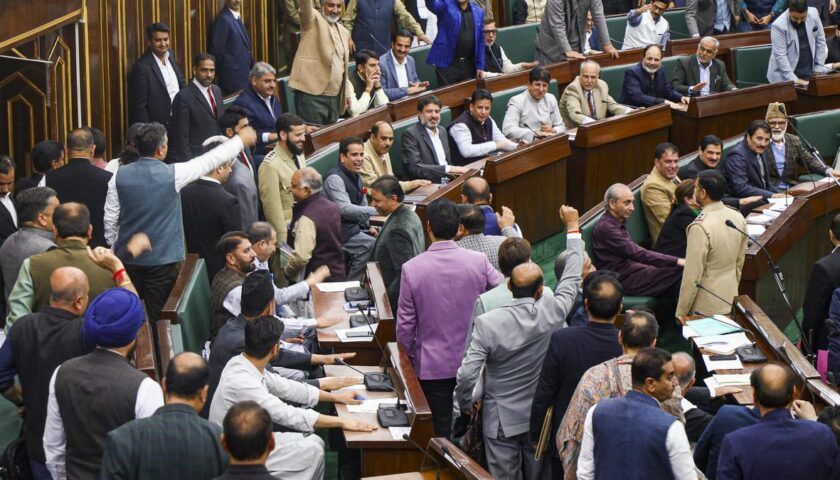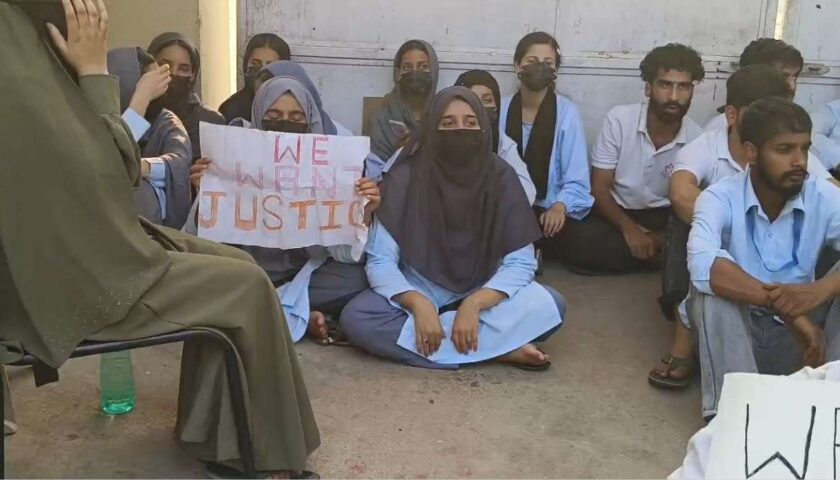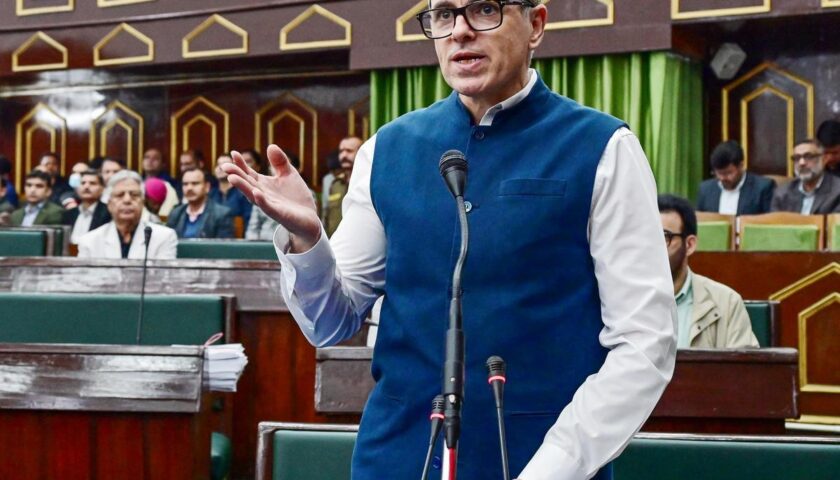Communal Rhetoric, Minority Profiling, and Post-Blast Politics in India: A Deep Dive into Arshad Madani’s Remarks and the Delhi Blast Aftermath
By: Javid Amin | 23 November 2025
Terror incidents have always reshaped India’s political and social landscape. But the aftermath of the November 2025 Delhi blast—a car bomb blast near Red Fort—has triggered not only a security debate but also a fresh wave of political and communal tension. Against this backdrop, Jamiat Ulema-e-Hind President Arshad Madani delivered a controversial statement alleging that “communal forces want to eradicate Muslims in India,” adding that Muslims “can never rise” under present circumstances.
His remarks sparked a swift and sharp reaction from the BJP, which accused Madani of “promoting identity politics” and “inflaming communal tensions.” The row escalated rapidly, feeding into a larger narrative already shaped by Kashmiri profiling, political responses to security threats, and decades of communal polarization around terror investigations.
This is a comprehensive exploration of the layered dynamics that have emerged:
-
Why Madani’s comments matter politically
-
How the BJP responded and reframed the narrative
-
Why Kashmiri harassment reports added fuel to the debate
-
Historical patterns of post-blast communal politics
-
The deeper questions of identity, trust, and national security
This analysis traces the socio-political undercurrents shaping India’s response to such crises—while placing the 2025 moment within a 20-year timeline of communal controversies linked to terror probes.
The Blast That Triggered a National Political Storm
The Red Fort Car Bomb: High-Voltage Security and Public Anxiety
On 10 November 2025, a car explosion near Delhi’s Red Fort killed more than a dozen civilians, injured scores, and sent the security establishment into high alert. Historical symbolism intensified the reactions: Red Fort has been the site of major terror attacks and security scares in the past, making this event not only tragic but politically charged.
In the immediate aftermath:
-
Law enforcement launched sweeping checks in Delhi and NCR.
-
Intelligence agencies focused on tracing cross-border links.
-
Security was heightened in major cities.
-
Public speculation and media narratives mushroomed.
Like many previous instances, the chaos of early reporting created space for identity-based suspicion, particularly aimed at Kashmiris and Muslims—communities historically entangled with the country’s security perceptions.
The Madani Controversy
What Arshad Madani Said—and Why It Resonated
During a press interaction tied to the blast investigation, Arshad Madani said:
-
“Communal forces want to eradicate Muslims in India.”
-
“Muslims in India can never rise.”
-
“There is systemic bias and structural discrimination.”
His statements were framed in the context of:
-
Harassment reports involving Kashmiris post-blast
-
A long history of profiling during terror investigations
-
Growing anxiety among Muslim communities over political marginalisation
Madani’s language was emotive, echoing concerns expressed privately within sections of the Muslim community, but rarely articulated this bluntly by a major religious leader.
Political and Public Reaction to the Remarks
BJP’s Counterattack
The BJP responded forcefully:
-
Accusing Madani of “playing victimhood politics”
-
Claiming he was “diverting attention from the blast probe”
-
Arguing that his comments were “dangerous and irresponsible”
Party spokespersons framed the remarks as an attempt to exploit a national tragedy for religious polarization.
Opposition & Civil Society Reaction
Interestingly, mainstream opposition parties maintained a careful distance:
-
They avoided endorsing Madani’s remarks
-
They emphasized protecting minority rights but rejected communal rhetoric
-
Some leaders privately expressed concerns about potential BJP counter-polarization
Civil society groups acknowledged discriminatory patterns in security responses but were cautious about endorsing rhetorically charged claims of “eradication.”
How Kashmiri Profiling Complicated the Debate
Harassment Reports: From Himachal Pradesh to Delhi Housing Colonies
Days after the blast, multiple reports surfaced:
-
Kashmiri students questioned aggressively by peers and hostel authorities
-
Street vendors targeted in Himachal Pradesh
-
Traders in Delhi NCR harassed by local groups
-
Suspicion-based police checks on Kashmiris living in rented rooms
These developments were alarming enough for Mirwaiz Umar Farooq, Farooq Abdullah, Mehbooba Mufti, and Omar Abdullah to issue urgent appeals to the Prime Minister and state administrations.
Their key message:
Kashmiris must not be punished collectively for a crime they have nothing to do with.
Mirwaiz called the reports “very disturbing” during his Friday sermon, drawing a direct connection between:
-
The Delhi blast
-
Kashmiris’ vulnerability
-
Shrinking space for dissent and independent journalism (in light of the Kashmir Times raid)
Why Kashmiri profiling intensifies minority anxiety
Kashmiris sit at the intersection of:
-
Ethnic identity
-
Religious identity
-
Politically contested geography
This triple identity makes them especially prone to suspicion during national security crises. Post-blast profiling feeds into long-standing grievances over:
-
Surveillance
-
Employment discrimination
-
Prejudice in educational institutions
-
Media stereotyping
Madani’s remarks resonated partly because they tapped into these daily anxieties—even if many found the language excessive.
The Politics of Identity After Terror Incidents in India
A 20-Year Timeline of Communal Flashpoints Linked to Blast Probes
Here is a concise timeline demonstrating how past blast investigations triggered similar political and communal storms:
| Year | Incident | Communal/Political Controversy |
|---|---|---|
| 2006 | Mumbai Train Blasts | Muslim youth detained en masse; later controversy over wrongful arrests |
| 2008 | Malegaon Blast | Arrest of Hindutva-linked figures sparked “saffron terror” debate |
| 2010 | Ajmer Dargah Blast | BJP vs Congress clash over “Hindu terror” terminology |
| 2013 | Hyderabad Dilsukhnagar Blasts | Civil society protests over alleged targeting of Muslim youth |
| 2019 | Pulwama Attack | Kashmiri students nationwide harassed; political temperature soared |
| 2025 | Delhi Red Fort Blast | Fresh wave of profiling; Madani-BJP confrontation deepens communal divide |
Why identity politics intensifies after every blast
Post-blast environments share common features:
-
High public anxiety
-
Political parties rushing to shape the narrative
-
Media hyper-coverage
-
Pressure on law enforcement to produce quick results
-
Communal narratives becoming electoral tools
Terror probes, instead of remaining technical investigations, often morph into identity battlegrounds.
Lessons from the Current Crisis
The Danger of Zero-Sum Narratives
Madani’s remarks present one extreme (“Muslims are being eradicated”), while BJP’s rebuttal presents another (“There is no problem at all, only politics”). Both narratives, when absolutist, obscure the actual complexities:
-
Legitimate concerns about profiling
-
Genuine need for national security
-
Subtle forms of social discrimination
-
Politicisation of terror investigations
A balanced national discourse requires acknowledging both security needs and minority rights.
What the Data Shows About Minority Sentiment
Surveys over the last decade reveal:
-
Rising fear of wrongful accusation
-
Concerns about hate crimes
-
Shrinking political representation
-
Increased mistrust of institutions in certain regions
While not evidence of “eradication,” these indicators reflect a climate of insecurity.
Role of Media: Shrinking Space, Growing Risks
The SIA raid on Kashmir Times added another dimension. For many Kashmiris, the raid symbolized:
-
Suppression of independent voices
-
Punitive action against dissent
-
A broader crackdown on expression in conflict regions
This reinforced perceptions that minority identity and political dissent are increasingly conflated with security threats.
The Bigger Picture—What Needs to Change
Recognizing Patterns Without Escalating Tensions
India must confront:
-
Bias-driven profiling
-
Polarising rhetoric by leaders
-
Politicisation of terror probes
-
Media sensationalism
-
Public prejudice
-
Weaponisation of identity by all sides
Blame cannot be placed solely on the state or the community; responsibility is spread across political, social, and institutional actors.
Building a Framework of Trust
Rebuilding trust requires:
-
Stronger anti-discrimination protocols
-
Transparent investigations
-
Educational awareness campaigns
-
Accountability for hate crimes
-
Balanced media reporting
-
Regular community-state dialogue channels
Democracy demands both security and justice.
Bottom-Line
Arshad Madani’s remarks, though controversial and emotionally charged, reflect a deeper anxiety felt within sections of India’s Muslim and Kashmiri communities—an anxiety intensified by the Delhi blast fallout. The BJP’s rebuttal illustrates how identity politics quickly becomes weaponised, especially in high-stakes national security contexts.
India’s challenge is not merely political but structural:
How to ensure security without enabling communal suspicion?
How to protect minority dignity without allowing extremist narratives to flourish?
How to prevent terror incidents from becoming communal flashpoints?
The answers lie in acknowledging the historical patterns, addressing contemporary fears, and balancing national security with constitutional equity. The 2025 moment can either deepen divisions—or spark renewed reflection on the values that hold India together.




